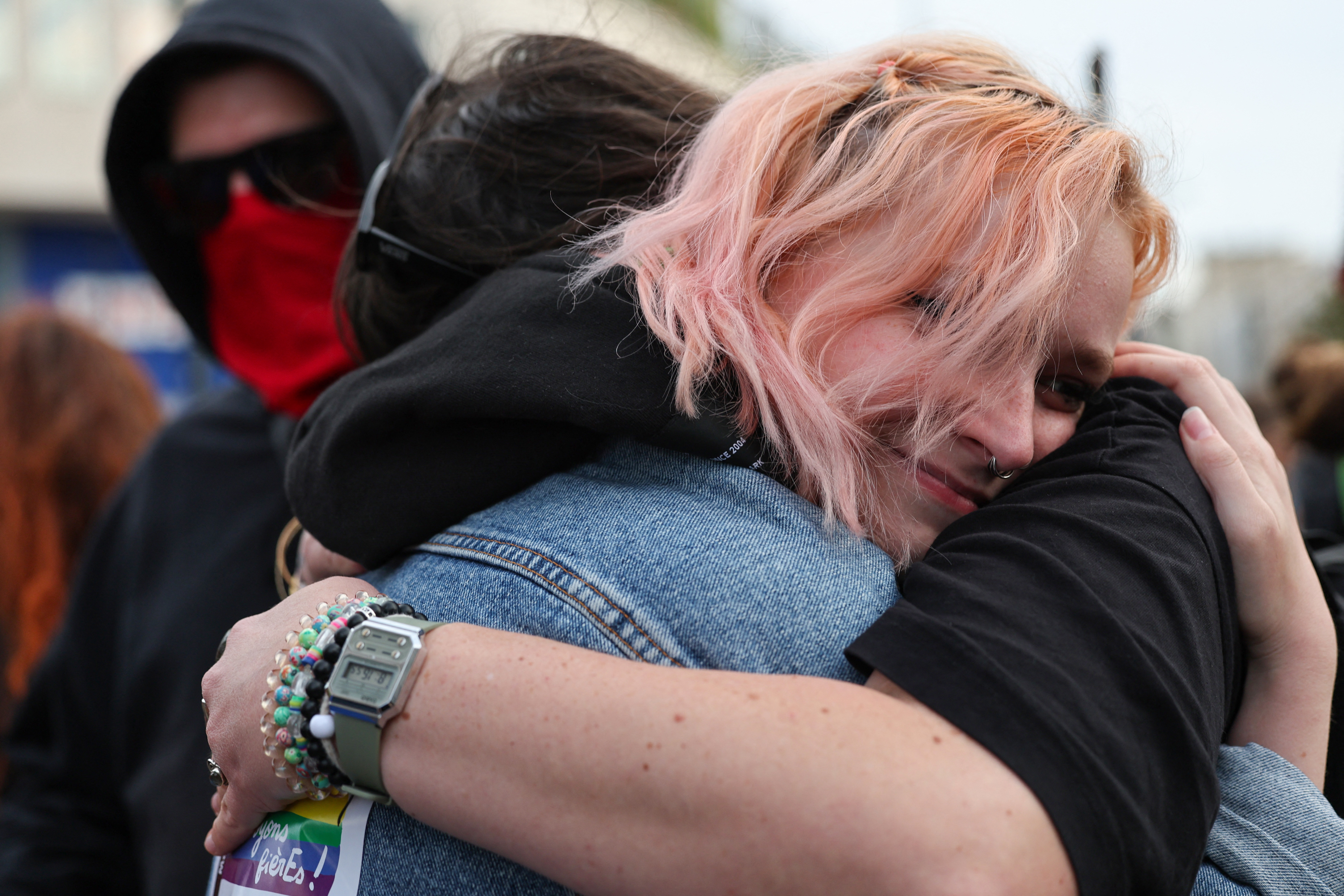French President Emmanuel Macron asked his prime minister on Monday to stay on for now, pending what will be difficult negotiations to form a government after a surprise left-wing surge in an election that delivered a hung parliament.
The leftist New Popular Front (NFP) emerged as the dominant force in Sunday’s election, thwarting Marine Le Pen’s quest to bring the far right to power.
With no single group securing a working majority, the outcome heralded a period of volatility before the Paris Olympics and raised uncertainty among investors about who would run the euro zone’s second largest economy.
“It’s not going to be simple, no, it’s not going to be easy, and no, it’s not going to be comfortable,” said Green party leader Marine Tondelier. “It’s going to take a bit of time.”
Possibilities include the left forming a minority government and the cobbling together of an unwieldy coalition of parties with almost no common ground.
Prime Minister Gabriel Attal, a centrist and ally of Macron, tendered his resignation but it was rejected.
“The President has asked Gabriel Attal to remain prime minister for the time being in order to ensure the country’s stability,” Macron’s office said.
A fragmented parliament will make it hard for anyone to push through a domestic agenda and is likely to weaken France’s role in the European Union and further afield.
“The most immediate risk is a financial crisis and France’s economic decline,” said the current finance minister, Bruno Le Maire.
The left won 182 seats, Macron’s centrist alliance 168 and Le Pen’s National Rally (RN) and allies 143, Interior Ministry data cited by Le Monde newspaper showed. Other media had slightly different counts, and final numbers will depend partly on individual parliamentarians joining different groupings.
Leaders of the NFP’s parties met overnight and were due to meet again on Monday to discuss who should replace Attal and what strategy to adopt.
Despite the uncertainty, some voters were happy with a three-way parliament.
“I think it’s great to have a diverse assembly like this, with roughly equal groupings. They will have to get along,” Valerie, who works in luxury, said in Paris.
But Jean-Eudes du Mesnil, of the CPME small and medium businesses union, was “worried because a number of things have been announced, notably by the Popular Front platform.”
“We’ll see whether they’re applied or not, but there are certain measures that are simply unthinkable,” he said, including among these a big increase in the minimum wage.
NO CONSENSUS ON LEFT
The NFP, hastily assembled for this election to try to unify the left-wing vote against the far right, has no single leader and did not say before the election who would be its pick for prime minister.
Tondelier is one of several potential candidates among NFP figures. She told France Inter radio the next prime minister could be from the hard-left France Unbowed party, the Greens or the Socialists, the three largest parties in the alliance.
There appeared to be no consensus on big questions such as whether the bloc should seek support from other forces such as Macron’s centrists.
Olivier Faure, the Socialist leader, told France Info radio he expected the parties to agree on a plan this week, but sidestepped a question on whether the NFP would be prepared to negotiate a deal with Macron’s centrist camp.
France Unbowed’s divisive firebrand leader Jean-Luc Melenchon has ruled out any deal with centrists.
Manuel Bompard, also from France Unbowed, told France 2 TV: “The president must appoint as prime minister someone from the New Popular Front to implement the NFP’s programme, the whole programme and nothing but the programme.”
The left-wing bloc, whose main proposals include reversing Macron’s pension reform and capping prices of key goods, will need some kind of agreement with lawmakers from outside the bloc if they are to govern.
The NFP’s programme, which if implemented would be likely to further strain France’s overstretched public finances, was viewed negatively by financial markets before the election.
CENTRISTS OPEN TO NEGOTIATION
Some prominent centrists said they were ready to work on a pact but would not work with France Unbowed, which many French centrists consider as extreme as the RN.
The euro slipped on Monday by as much as 0.4% as investors pondered the uncertainty.
Macron looks unlikely to be able to drive policy again, though he had already pushed through much of his agenda including increasing the pension age, a move that caused street protests, and a divisive immigration bill.
For Le Pen’s RN, the result was a huge disappointment as opinion polls had for weeks projected it would win.
The left and centrist alliances cooperated after the first round of voting last week by pulling scores of candidates from three-way races to avoid splitting the anti-RN vote.
Le Pen, the party’s likely candidate for the 2027 presidential election, said Sunday’s ballot had sown the seeds for future victory.
With 32.05% of the votes, the RN won more votes than any other single party on Sunday but alliances, tactical voting and its own mistakes prevented it winning.
Adélaïde Zulfikarpasic, of BVA Xsight pollsters, questioned the RN’s preparedness and said some voters had found it “a little scary”.
In Boulogne-sur-Mer, in northern France, 61-year old retired fisherman Denis Dewet, drawing parallels with presidential elections said: “It’s because France doesn’t like the extremes.”







Click here to change your cookie preferences